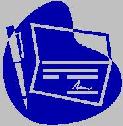
 |
|
| Financial Terms | |
| Land |
|
Information about financial, finance, business, accounting, payroll, inventory, investment, money, inventory control, stock trading, financial advisor, tax advisor, credit.
Main Page: accounting, credit, money, tax advisor, finance, stock trading, business, financial, |
Definition of Land
LandThe cost of land owned by the company.
Related Terms:Land improvementsThe cost of improvements to land owned by the company, such as fencing and outdoor lighting. Bank for International Settlements (BIS)An international bank headquartered in Basel, Switzerland, which Non-reproducible assetsA tangible asset with unique physical properties, like a parcel of land, a mine, or a Rembrandt marketThe foreign market in the Netherlands. Tangible assetAn asset whose value depends on particular physical properties. These i nclude reproducible PROPERTY AND EQUIPMENTAssets such as land, buildings, machinery, and equipment that the business will use for several capital expendituresRefers to investments by a business in long-term  fixed assetsAn informal term that refers to the variety of long-term operating property, plant, and equipmentThis label is generally used in financial European Union (EU)an economic alliance originally created Insurable InterestIn England in the 1700's it was popular to bet on the date of death of certain prominent public figures. Anyone could buy life insurance on another's life, even without their consent. Unfortunately, some died before it was their time, dispatched prematurely in order that the life insurance proceeds could be collected. In 1774, English Parliament passed a law which restricted the right to be a beneficiary on a life insurance contract to those who would suffer an economic loss when the life insured died. The law also provided that a person has an unlimited insurable interest in his own life. It is still a legal stipulation that an insurance contract is not valid unless insurable interest exists at the time the policy is issued. Life Insurance companies will not, however, issue unlimited amounts of coverage to an individual. The amount of life insurance which will be approved has to approximate the loss caused by the death of the individual and must not result in a windfall for the beneficiary. Capital InvestmentsMoney used to purchase fixed assets for a business, such as land, buildings, or machinery. Also, money invested in a business on the understanding that it will be used to purchase permanent assets rather than to cover day-to-day operating expenses. ChattelPersonal property other than interests in land. Fixed Assetsland, buildings, plant, equipment, and other assets acquired for carrying on the business of a company with a life exceeding one year. Normally expressed in financial accounts at cost, less accumulated depreciation. Related to : financial, finance, business, accounting, payroll, inventory, investment, money, inventory control, stock trading, financial advisor, tax advisor, credit. |